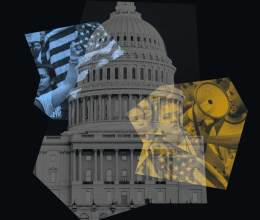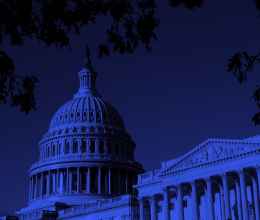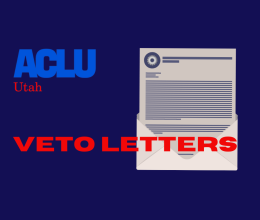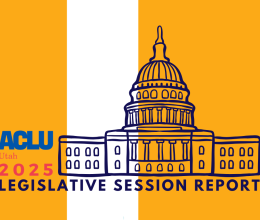
The Trump administration’s three executive orders targeting diversity, equity, inclusion, and accessibility (DEIA) initiatives take a “shock and awe” approach that upends longstanding, bipartisan federal policy meant to open doors that had been unfairly closed. In his first few days, President Donald Trump is undertaking a deliberate effort to obfuscate and weaponize civil rights laws that address discrimination and ensure everyone has a fair chance to compete, whether it’s for a job, a promotion, or an education.
With these actions, the administration is not only undoing decades of federal anti-discrimination policy, spanning Democratic and Republican presidential administrations alike, but also marshalling federal enforcement agencies to bully both private and government entities into abandoning legal efforts to promote equity and remedy systemic discrimination. Trump’s executive orders undermine obligations dating back to the Johnson administration that firms doing business with the U.S. government and receiving billions in public dollars are held to the highest standards in remedying and preventing bias.
How Do These Orders Dismantle Decades of Federal Anti-Discrimination Policy?
For decades, federal policies have supported efforts to promote equal opportunity, enforced by administrations from both parties. These policies grew out of federal anti-discrimination laws passed during the 1960s civil rights struggle and have been expanded to guarantee that opportunity was not denied — as it had been for too long — because of one’s race, gender, sexual orientation, gender identity, disability, or other legally protected characteristics.
Trump’s executive orders represent a major departure from these policies, particularly in the federal contracting space. One order rescinds Executive Order 11246, a cornerstone of equal opportunity policy for federal contractors that has been in place since 1965 under the Johnson administration, without offering any replacement framework. This abrupt shift abandons a measure that has helped dismantle entrenched race and sex segregation in high-paying industries historically closed to women and Black and Brown workers. It also leaves contractors scrambling to navigate a complex regulatory environment, including federal anti-discrimination laws like Title VII and other laws mandating federal contractors take affirmative action with respect to veterans and disabled workers — all of which remain in place.
How Will These Orders Target DEIA in the Workplace?
More broadly, the orders seek to intimidate all employers — ranging from private organizations and federal contractors and grantees to state and local entities — into abandoning DEIA initiatives, using vague and threatening language to create fear of enforcement actions. The strategy is clear: Bully everyone into dropping programs that ensure equitable workplaces by falsely equating diversity efforts with discrimination.
Yet, in employment for example, properly designed DEIA programs are not only legal under federal and state civil rights laws and longstanding legal precedents; they are also necessary to ensure compliance with those laws. Programs labeled as DEIA encompass a broad range of lawful initiatives that create fairer workplaces and ensure opportunities aren’t limited based on race, ethnicity, disability, sex, sexual orientation, or gender identity. Many of these initiatives are not focused on selecting specific candidates for hire — they aim to create fairer processes. For instance, recruiting at underrepresented institutions or ensuring fairness in promotion criteria helps address systemic inequities without disadvantaging any individual.
These programs are not discriminatory; they are essential to creating environments where everyone has a chance to succeed and addressing persistent barriers for individuals to advance in their careers. Employers must take a stand against this political intimidation and remain committed to opening doors to all candidates, especially those facing unfair headwinds. Legal advocacy groups and state attorneys general have urged compliance with federal anti-discrimination laws while advancing equity through measures that are neutral to race and other protected characteristics. Abandoning these programs risks perpetuating inequality, alienating diverse talent, and violating equal employment laws. Simply put, the federal government should not be intimidating and coercing employers into abandoning their commitment to equal opportunity in the workplace.
What About in Schools and Higher Education Institutions?
The executive orders also target DEIA and necessary practices in higher education institutions and schools. These actions mischaracterize lawful equity programs as discriminatory, aiming to chill efforts to promote equal access in education.
The Supreme Court’s decision in Students for Fair Admissions, Inc. v. Harvard left colleges and universities with several pathways to advance educational equity. The decision had no bearing on K-12 education, where schools must continue to identify and address barriers to equitable learning environments.
At a minimum, schools are required to comply with federal and state civil rights laws that ensure educational opportunities are provided on an equal basis. This means reviewing policies and practices to ensure they don’t unnecessarily limit opportunities based on race or other protected characteristics. Schools must also work to foster a climate where all students can access and thrive in their educational pursuits. Now, more than ever, educational institutions must resist intimidation and reaffirm their commitment to identifying and removing barriers to equal opportunity.
What Happens Next?
Programs labeled as DEIA encompass a broad range of lawful initiatives that create fairer workplaces and schools. The executive orders attempt to conflate these lawful efforts with discrimination, weaponizing enforcement to bully institutions into abandoning critical programs and taking steps to try to eliminate protections against discrimination by government contractors. However, no court has declared DEIA efforts inherently illegal, and President Trump cannot override decades of legal precedent.
Companies, schools, and institutions must resist the fear and confusion these executive orders are designed to create. Now is the time to double down on our commitment to equal opportunity, ensuring that everyone, regardless of their background, has a fair chance to thrive. The ACLU continues to stand firm against these actions. DEIA expands opportunity in our nation by improving education, helping businesses grow, and giving all communities a chance to thrive and succeed.







